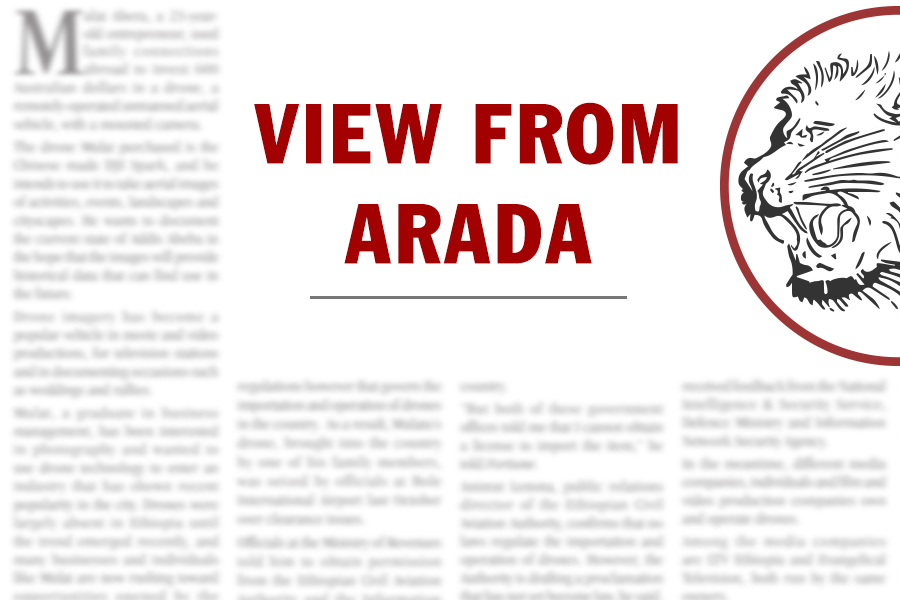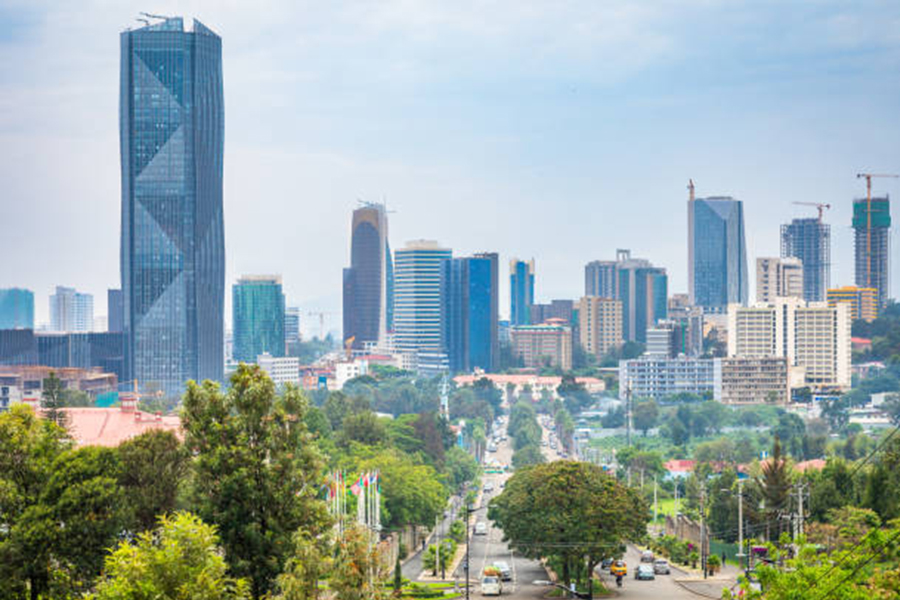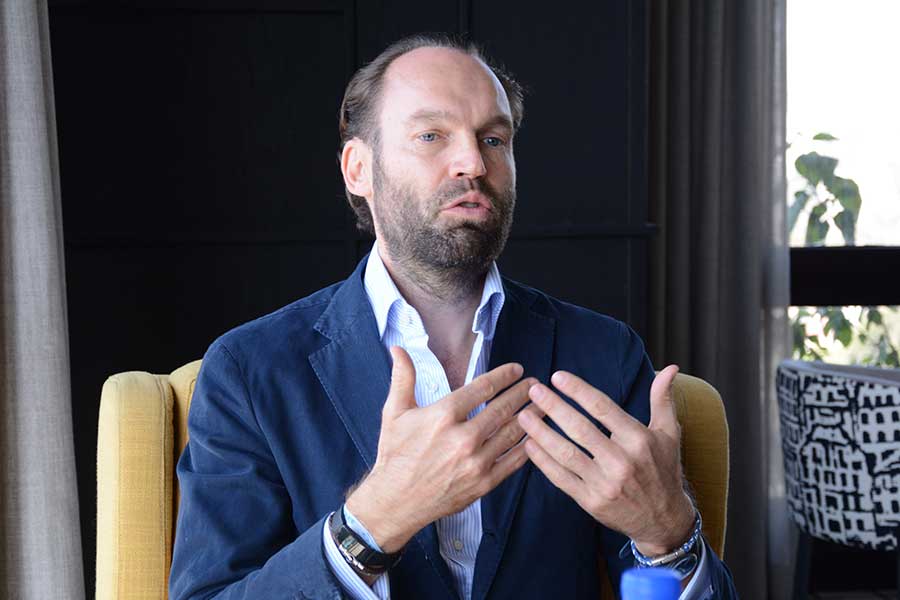
View From Arada | Oct 19,2019
Sep 11 , 2020
By Carolyn Kissane
Day after day, the gap between the poor and the rich in Addis Abeba is widening. It has gone from a puddle to a deep and wide ocean.
It is not uncommon to see people spend 500 Br - an amount that would have made even moderately rich people by 1990s standards gasp - for a single meal, dessert and a cup of macchiato exclusive. Two thousand Birr buffets are not unique anymore.
I do not know what kind of meal is worth that kind of money, especially in a country where people are struggling to put food on their plates. With the economy slowing down, food becoming more expensive and food insecurity on the rise, the lavish lifestyle of the rich seems scantly ethical.
People with big cars and fat wallets that are willing to spend tens of thousands of Birr overnight at a nightclub – drinking alcohol they will probably throw up in a short while – are hard to stomach.
Some may argue that it is their own money and that they have the right to do whatever they want with it. It is an opinion that goes to the heart of property rights and capitalism. But it is also a sign of socioeconomic dysfunction when the very few can spend on lunch what a large mass of the people would need for over a week's worth of groceries.
It does not matter whose fault it is. It only matters that the political and social consequences are going to be devastating the worse it gets. This is specifically because the people of these two worlds cannot avoid running into each other. One of the places that this happens quite often is hair salons.
I went to a hair salon a few days ago. I wanted to get my hair and nails done for a job interview I was scheduled to have. And, of course, for Ethiopia’s New Year. I went to one of the hair salons nearby, which I had never been to before. It seemed fancy, judging from its facilities.
As I set foot at the door, one of the hairdressers told me to wash my hands before I could get in. She was utterly unwelcoming, as if she did not care for the business I would bring.
After I got in and sat in a chair, an old lady came and sat across from me. She told the other hairdresser that she wanted to get new hair colour and a haircut.
“That would be 1,000 Br,” the hairdresser said.
The lady got up and left. It did not seem like the hairdresser was all that troubled by it.
"You scared her away. Isn't that too expensive for hair colour?" I asked. He replied, "It's not just any hair colour. It is Revlon."
I knew the price for another hair colour had gotten to around 600 Br, but this was too much. The hairdresser went on to explain about the product. I could not deny that Revlon was a good product. I just took umbrage at the price that was demanded for it.
It was not just the price that was unacceptable. There were also the looks customers get when the employees are convinced that someone would not be able to afford it. The hairdressers judge a customer the minute they set foot into the salon.
If one is dressed in a manner that seems cheap, they do not get the royal treatment. If one is wearing expensive-looking clothing and has a human hair wig on, their worth in the eyes of the staff skyrockets. They know that such people have cash to spend and will consequently tip them generously. They kiss the ground they walk on.
“The discrimination starts here in our own country … sadly enough our own people administer it," a friend said to me a while ago after witnessing how security guards at checkpoints treated domestic workers flying to the Middle East.
When it was people that seemed to have a higher standard of living, the security guards were a great deal more reverent.
Everybody would surely agree that we should not treat people differently based on the size of their wallets. Unfortunately, very few act as if they agree.
PUBLISHED ON
Sep 11,2020 [ VOL
21 , NO
1063]


View From Arada | Oct 19,2019

Fortune News | Nov 04,2023

Radar | Jun 27,2020

Featured | Dec 21,2019

Fortune News | May 23,2025

Radar | Oct 12,2025

Exclusive Interviews | Dec 12,2020

Radar | Jul 18,2020

Fortune News | Aug 14,2022

Fortune News | Apr 17,2021

Photo Gallery | 175483 Views | May 06,2019

Photo Gallery | 165705 Views | Apr 26,2019

Photo Gallery | 156051 Views | Oct 06,2021

My Opinion | 136824 Views | Aug 14,2021

Dec 22 , 2024 . By TIZITA SHEWAFERAW
Charged with transforming colossal state-owned enterprises into modern and competitiv...

Aug 18 , 2024 . By AKSAH ITALO
Although predictable Yonas Zerihun's job in the ride-hailing service is not immune to...

Jul 28 , 2024 . By TIZITA SHEWAFERAW
Unhabitual, perhaps too many, Samuel Gebreyohannes, 38, used to occasionally enjoy a couple of beers at breakfast. However, he recently swit...

Jul 13 , 2024 . By AKSAH ITALO
Investors who rely on tractors, trucks, and field vehicles for commuting, transporting commodities, and f...

Oct 18 , 2025
The political establishment, notably the ruling party and its top brass, has become p...

Oct 11 , 2025
Ladislas Farago, a roving Associated Press (AP) correspondent, arrived in Ethiopia in...

Oct 4 , 2025
Eyob Tekalegn (PhD) had been in the Governor's chair for only weeks when, on Septembe...

Sep 27 , 2025
Four years into an experiment with “shock therapy” in education, the national moo...

Oct 18 , 2025 . By NAHOM AYELE
In a sweeping reform that upends nearly a decade of uniform health insurance contribu...

Oct 18 , 2025 . By BEZAWIT HULUAGER
A bill that could transform the nutritional state sits in a limbo, even as the countr...

Oct 18 , 2025 . By SURAFEL MULUGETA
A long-planned directive to curb carbon emissions from fossil-fuel-powered vehicles h...

Oct 18 , 2025 . By BEZAWIT HULUAGER
Transaction advisors working with companies that hold over a quarter of a billion Bir...